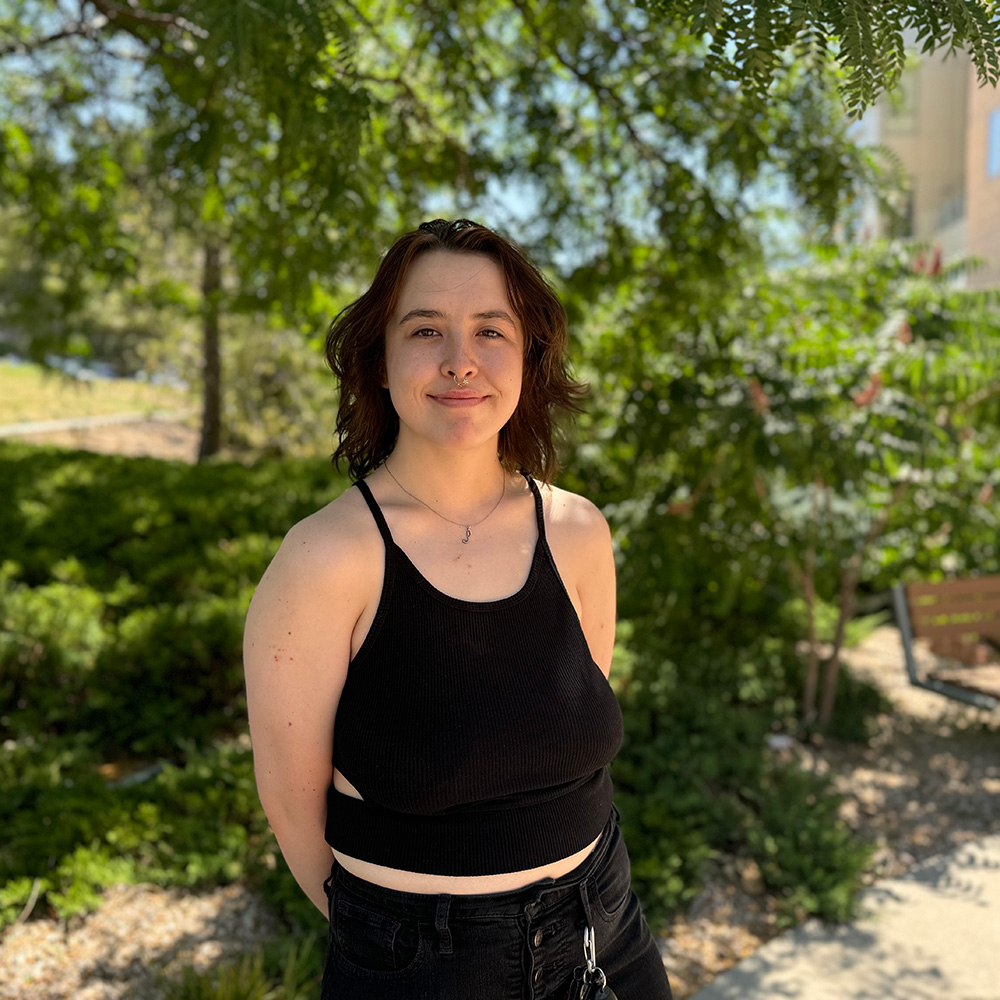Humanities Recognized Student Government
Join The College of Humanities Recognized Student Government
College of Humanities Recognized Student Government Statement
The College of Humanities Unity & Mission Recognized Student Government (Hum RGS) aims to support student voices, while being accountable to the students. In doing so the RSG will work to bring together the college's leadership and students to better the humanities college community.
Hum RSG Duties
- Represent student voices
- Inclusion on faculty retention, promotion, and tenure review
- Plan events, initiatives, and activities
- Advocate for students in the college of humanities
- The Hum RSG will also receive ASUU funding to help humanities students
ASUU Redbook Bylaws, RSG Charter
SECTION 18 – ASUU REGISTRY OF RECOGNIZED STUDENT GOVERNMENTS
- Senate Registrar
1.1.The ASUU Registry of Recognized Student Governments, hereafter referred to as “Registry” is to be managed, maintained, and overseen by the Senate Registrar.
1.2.The Registrar may delegate tasks, responsibilities, or management powers to other members of the Executive Committee as they deem necessary.
1.3.The Registrar is responsible for:
1.3.1. Adding or removing Recognized Student Governments from the Registry,
1.3.2. Overseeing access to the Registry,
1.3.3. Facilitating access to the Registry when the ASUU Senate Executive Committee’s permission is required to do so,
1.3.4. Maintaining updated, organized, and consistent lists within the Registry.
- Registry
2.1.The Registry is to be a document compiling lists of:
2.1.1. Every Recognized Student Government which has been formally Recognized by the ASUU Government.
2.1.2. A maximum of one (1) Recognized Student Government per Academic College.
2.1.3. Contact information for every Recognized Student Government.
2.1.4. Contact information for every Recognized Student Government’s Primary and Secondary Executives.
2.1.5. A list of all members of every Recognized Student Government, sorted according to their membership and roles within those governments.
2.1.6. Every Recognized Student Government’s Signed Application Document.
2.1.7. Every Nullified Student Government’s Signed Article of Nullification.
2.2. Management of the Registry
2.2.1. The ASUU Registry of Recognized Student Governments is overseen and managed by the ASUU Senate.
2.2.2. One Senator each year is selected by the Chair of the ASUU Senate to fill the role of Registrar.
2.2.3. Access to the Registry is granted automatically to the members of the ASUU Senate Executive Committee.
2.2.4. Access to the Registry is granted with permission from the ASUU Senate Executive Committee to the rest of the ASUU Senators, the ASUU Assembly Representatives, and any member of the Executive or Judicial branches of the ASUU Government.
- Addition to the Registry
3.1.Application Process
3.1.1. Application for Recognition by ASUU can be undertaken at any time during the academic year.
3.1.2. To submit an Application for Recognition, a prospective Student Government must meet the Minimum Requirements for Recognition as described in the RSG Charter.
3.1.3. Applicant Review follows the format described in the RSG Charter.
3.2. Reapplication Process
3.2.1. Reapplication for every Recognized Student Government is to take place during the first Senate Legislative Cycle of every Fall Semester.
3.2.2. The Reapplication Process follows the same format for the original Application Process as described in the RSG Charter.
3.3.Addition Process
3.3.1. After Recognition is declared by the ASUU Senate, an application is signed and added to the Registry.
3.3.2. After the signed application is added to the Registry, the Senate Registrar must obtain and add to the registry all of the information required by Redbook.
3.3.3. Once the information for a Recognized Student Government is filled out and added to the Registry, that Government is then considered Recognized by the ASUU.
- Removal from the Registry
4.1. Removal from the Registry is to occur according to the process outlined in the RSG Charter. 5. List of Unrecognized Student Governments
5.1.The List of Unrecognized Student Governments is a list managed by the Senate Registrar in a similar manner to the Registry of Recognized Student Governments.
5.2.This list contains:
5.2.1. A list of all student governments that have never submitted an application for Recognition by ASUU.
5.2.2. A list of all student governments that have submitted a failed application for Recognition by ASUU.
5.2.3. A list of all student governments that were once recognized by ASUU but had their recognition nullified.
5.2.3.1. Included is the student government’s Article of Nullification signed by the ASUU Senate Executive Committee.
5.3.This list has the same access and management rules as the Registry of Recognized Student Governments.
More information can be found in the RSG chart
SECTION 2 – POWERS AND DUTIES
- To promote the academic development of its College’s student body.
- To Oversee the Retention, Promotion, and Tenure (RPT) process relating to the corresponding student vote.
- To participate in Tenure Faculty Review.
- To propose legislation to the Senate.
- To provide a forum for members of each College to discuss academic matters and other appropriate concerns with the members of the College Student Council.
- To review travel applications for all students and sponsored student organizations
affiliated with the College.
- All approved travel applications will be forwarded to the ASUU Travel Committee.
- To meet at least two (2) times per semester.
UNITY AND BELONGING
We as a student organization, representing the college of humanities, are committed to building a community of respect and support. We are committed to serving underrepresented and minoritized humanities students. We strive to create a space of unity and belonging among students.
We aim to promote ADA access in humanities buildings, center student voices and experiences, and advocate for change.
We acknowledge that students who have experienced microaggressions, discrimination, and any other form of prejudice are impacted in a multitude of ways and have unique, complex experiences.
Contact Information

Reese Maranda Van Dyke
HUM RGS: VP Internal
ASUU: Assembly Rep
Presidential Assistant/Ambassador:
VP Internal Assistant:
VP External Assistant:
Social Media Chairs:
Korea Campus Liaison:



